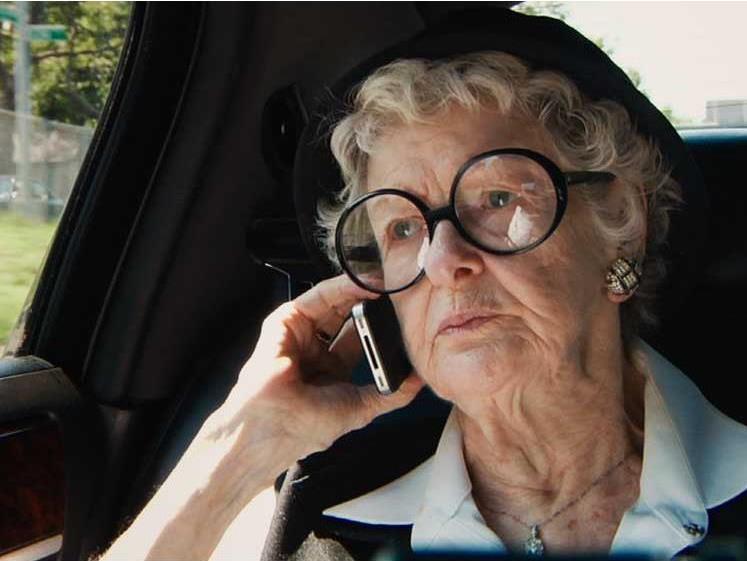‘Never confuse Elaine Stritch with anyone else,’ advises actress Cherry Jones in Elaine Stritch: Shoot Me, though audiences shouldn’t need such a warning. Since making her debut in theatre in 1944, on Broadway in 1946, and on TV in 1949, the grand dame of stage and screen proved an inimitable figure. For the seven decades of her career, including working in musicals by Noel Coward and Stephen Sondheim, a film with Woody Allen, and winning an Emmy award for guest-starring on television’s 30 Rock, her voice, her presence and her humour were as brashly distinctive as they were utterly beguiling.
At the age of 86 when the documentary starts, turning 87 during its frames, that same quick-witted spirit shines through. Indeed, it is Stritch being the constantly acerbic Stritch that makes first-time director Chiemi Karasawa’s portrait of the legendary performer so fascinating, as presented without any pretence of a façade or a filter. As actor John Turturro – one of the many famous faces seen throughout the film alongside Alec Baldwin (also a producer of the feature), Tina Fey, Nathan Lane and late James Gandolfini – warmly notes, “Elaine’s got something authentic about her. She’s conscious about how she comes across, but she still doesn’t hide herself. That’s the difference with her.”
Capturing that uncompromising frankness, Elaine Stritch: Shoot Me charts her efforts to mount an autobiographical one-woman cabaret, Elaine Stritch Singin’ Sondheim… One Song at a Time – a successor to her Tony-winning Elaine Stritch at Liberty a decade earlier. As well as demonstrating the determination and steely resolve that has always served Stritch so well in show business, it affords the biographical film an inbuilt mechanism for reflecting upon her life and work, rehearsals and performances supplemented with archival footage as well as Stritch’s own sweet but unsentimental memories.
Seeing the singer and actress in action so late in her life is a sight to behold, content that extends to her time on the 30 Rock set; however it is the behind-the-scenes reality that proves most riveting. In a vanity-free, warts-and-all account, her health issues start to overwhelm her urge to tread the boards, turning the film into a meditation on mortality as much as a tribute to its star. Even as her vitality wanes, Stritch’s honestly never wavers nor her trademark joking at her own expense, whether talking about the diabetes that sees her increasingly hospitalised, or recounting her struggles with alcohol. Of course, Stritch’s candid approach to her aging – getting older, not old, as she vehemently states – is clouded with extra sorrow watching the film now, given her death in July 2014.
As a documentarian, Karasawa favours her best asset – her confident, compelling subject – over showy directorial style, lingering on Stritch for as long as possible. It is an understandable and assured approach, and one that pays off for fans and the unacquainted alike. Though plainly shot and traditionally structured, Elaine Stritch: Shoot Me resonates with the entertaining energy of a woman and icon who can hold a film in the palm of her hand just as she can a packed-out theatre audience.
Rating: 3.5 stars out of 5
Elaine Stritch: Shoot Me
Director: Chiemi Karasawa
USA, 2013, 81 mins
Australian Centre for the Moving Image
http://www.acmi.net.au/film/seasons-and-screenings/elaine-stritch-shoot-me/
2 – 28 April
Actors:
Director:
Format:
Country:
Release:





